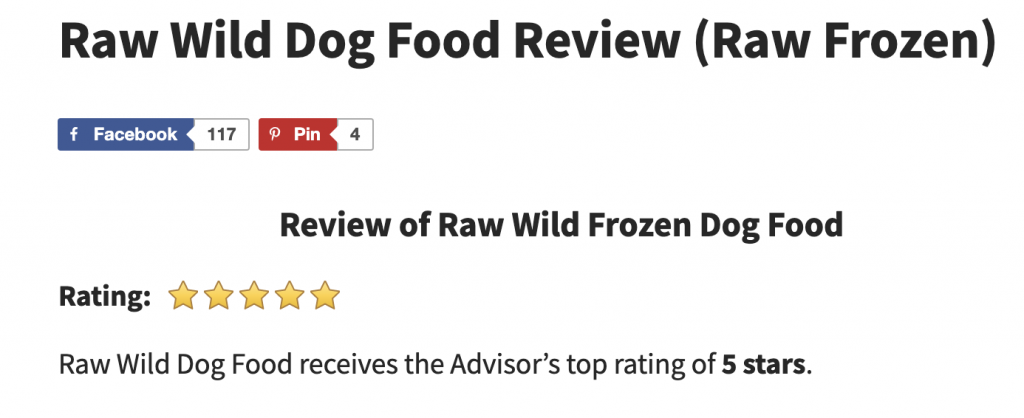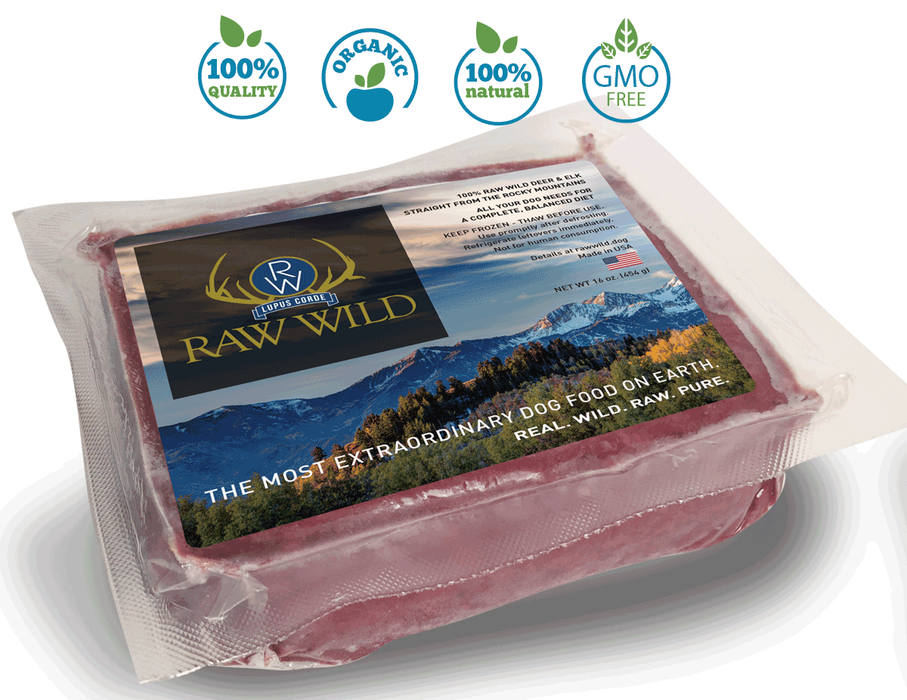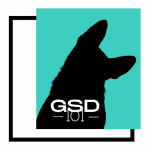Disclosure: This post contains affiliate links. We may earn a small commission if you decided to make a purchase, at no additional cost to you.
Your dog is a part of your family. He’s probably one of the sweetest, most loving dogs in the world. Feeding him well is an important part of keeping him strong, energetic, healthy, and happy. But do you know what are the best foods for your dog? And what is the food and ingredient you should avoid when it comes to dog food?
The best three food you can feed your dogs are: 1. organ meat which is jam-packed with nutrients, vitamins, and minerals; 2. omega 3, which is proven to increase brain development, provide joint relief and ease allergies; and 3. prebiotics that support the immune system and good digestion.
Watch this video where 45-year veterinarian Dr. Marty Goldstein, reveals the answer:
Avoid the Three Dog Health Disruptors
Before you learn what is the best food for your dog, it’s very important to be aware of the three worst ingredients you can find in dog food – which you should avoid as much as possible. And according to Dr. Marty, who coined these ingredients as “dog health disruptors, can cause poor digestion, irregular stool habits, overweight, skin problems, joint pain, and even depression in dogs. And they are:
#1 Preservatives: They deter digestion and prevent your dog from getting the proper nutrients from their food.
#2 Fillers: They are cheap substitutes for meat, e.g. heavy grains like soy, wheat, barley, flour, white rice, and corn.
#3 Meat by-products: These are slaughterhouse waste (e.g. organs, feet, beaks, brains, undeveloped eggs, pieces of tumors, intestines). And sometimes labeled as:
- Chicken-by-product
- Beef-by-product
- Lamp-by-product
- Duck-by-product
- Meat meal or Meat and bone meal (these can contain road-killed or dead animals)
Corn is NOT appropriate for carnivores. It is an incomplete protein, contains protein and is one of the more allergenic food substances, especially since much of it is GMO.
Dr. Elsa Katz
Be sure to read the packaging very carefully when you are shopping for your dog food. If you see any of these ingredients, your best bet is to put the dog food back on the shelf.
The Benefits of Feeding Your Dog with the Best Foods
Let’s get straight to the point, what are the benefits of feeding your dog with the best food?
It could be everything you want from a healthy and happy pet who is more likely to live a longer life. And here are some of the most obvious benefits:
- Coats become shiny and thicker
- More energy, calmer and happier
- Stool habit becomes more regular

It is almost every pet owner’s dream, right?
At the end of the day, the healthier your dog is, the less you have to worry and spend on your vet bills. Hands down.
The Three Best Foods for Your Dog
According to Veterinarian Dr. Marty, the three best food for your dogs are:
#1 Organ meat: In comparison to meat, organs are more densely packed with nutrients, essential vitamins, protein, and minerals like iron, copper, magnesium, and iodine.
#2 Omega 3: It is proven to increase brain development, provide joint relief and ease allergies. This results in a more responsive, easier to train, and more alert dog.
#3 Prebiotics: They are usually found in flax, pea flour, carrot, ginger. Prebiotics works to support the immune system, improve digestion, and guard against environmental toxins.
| Do you know? Environmental toxins are unavoidable. They are in the food we eat, the water we drink, the air we breathe, and many household items we use every day. Toxins cause vomiting, diarrhea, agitation, and heart issues in pets. Inhaled toxins may cause breathing difficulties or loss of consciousness in dogs. If your dog’s skin comes in contact with a poisonous substance typical symptoms include irritation and pain. |
Kibbles or Raw?
Many people feed their dog kibbles because it’s easy and efficient. Or simply they are too lazy (they use “busy” as an excuse) to prepare the best food for their beloved dog. It’s entirely your own choice to feed what you think is the best for your dog.
A lot of dog owners are finding themselves switching from one brand to another and still unable to find the best food for the health, digestion, and skin problem of their dog.
The answer might simply be because dogs are carnivores in the first place, and they should be eating raw meat for their benefit.
Raw food dog food can be homemade, store-bought, freeze-dried, or dehydrated. A raw diet usually includes organ meats, muscle meat, whole or ground bone, raw eggs, dog-safe fresh fruits and vegetables, and a dairy product such as yogurt.
If you have never fed your dog raw or are in the market to search for the raw food to start, you’ve come to the right place.
Raw Dog Food Delivered to Your Door
If you don’t want to go through the hassle of preparing raw meats or organs, a raw food delivery service can be a good choice.
Raw Wild Dog Food is a raw dog food delivery service that is 99.4% wild elk and deer. And elk and deer are naturally rich in all ten essential amino acids required by a dog to sustain life. These animals are 100% raised and feed in the wild. There are zero hormones, zero antibiotics, zero fillers, zero preservatives, and zero GMOs.

They are very picky at selecting the most suitable organ meats for your dog:
We elected to not add organ meat from domestically raised animals since we feel that would possibly contaminate our completely wild food with organs (particularly the liver) that concentrate mycotoxins, pesticides and other contaminants from food fed to domestically raised animals. In addition, we elected not to adulterate our product with organs that are processed in a commercial slaughterhouse because of the likelihood of bacterial contamination.
Raw Wild
Raw Wild receives the Advisor’s top rating of 5 stars on DogFoodAdvisor.com

Free of any plant-based protein boosters, this looks like the profile of a raw product containing an abundance of meat.
DogFoodAdvisor
Here are the main ingredients of Raw Wild:
- Elk: It is considered “the clean flesh derived from slaughtered”.
- Deer: It is also considered “the clean flesh derived from slaughtered”.
- Fish oil: Fish oil is naturally rich in the prized EPA and DHA type of omega-3 fatty acids. These two high-quality fats boast the highest bio-availability to dogs and humans.
- Sunflower seed oil: It is high in omega-6 fatty acids which is even considered to be more nutritious than canola or flaxseed oils.
There you have it. Raw Wild contains mostly what Dr. Marty suggested when it comes to a healthy diet. Click below check buying options:

Final Thoughts
Don’t be confused with the packaging of the dog food you can purchase on the shelves. If you are not sure what the ingredients are, they are probably something you should avoid. At the end of the day, a healthy and happy dog is the best thing you can have when it comes to pet ownership.

| RAW WILD is sourced from nature, not a feedlot. CLICK HERE for FREE SHIPPING on 48lb order! |
Further questions
Can dogs digest raw meat?
Dogs are carnivores by nature. With higher acidity in their stomachs and shorter intestinal tracts, they can eat raw meat that may harbor salmonella or listeria spores with no problem.
How much organ meat should a dog eat?
Organ meats are packed with vital nutrients. In addition to high-quality protein and fat, entrails are rich sources of vitamins and minerals.
Organ meats can account for up to 25% of the overall food intake of a dog, depending on the age, weight and lifestyle of your dog.
Will dogs get sick from eating raw meat?
For dogs, the bacteria and parasites found in food aren’t actually that much of a problem. Dogs are pretty resistant to many of the possible bugs that can be isolated from raw meat and they rarely become ill.
When can you start to feed your dog raw meat?
You can start giving your puppy raw food at about 8 to 12 weeks.
More posts on feeding your German Shepherds

Must read:
- The Best & Worst Dog Foods Ever – According to a 45-Year Veterinarian
- Worst Dog Food for German Shepherds
- Is Grain-Free Good for German Shepherds?
- How to Stop Food Aggression Towards People in German Shepherds?
Choosing the best dog food:
- The Best Food For German Shepherd Puppies
- Best Cheap Dog Food for German Shepherds (Dry and Wet Food)
- Best Dry Dog Food for Your German Shepherd Puppies: How to Choose?
- The Best Dog Food for a 12 Months German Shepherd
- What To Look For When Buying Dog Food for German Shepherds?
- Is Royal Canin German Shepherd Dog Food Any Good? Read This First
On feeding your German Shepherd:
- How Much Does It Cost to Feed a German Shepherd Puppy in the First Year?
- How Much Does an 8-Week-Old German Shepherd Puppy Eat in a Day? A Feeding Guide
- How Much Does a 3-Month-Old German Shepherd Dog Eat in a Day? A Feeding Guide
- How Much Does a 6-Month-Old German Shepherd Dog Eat in a Day? A Feeding Guide
- Can Dogs Eat Vanilla Ice Cream?
- 17 Human Foods That Are Safe For German Shepherds to Eat
- The Benefits of Feeding German Shepherds Raw Food
- How to Feed Your Dog Raw Food on a Budget?
- Is It Ok to Give Raw Meat to My German Shepherd Puppy?
For picky eaters:



